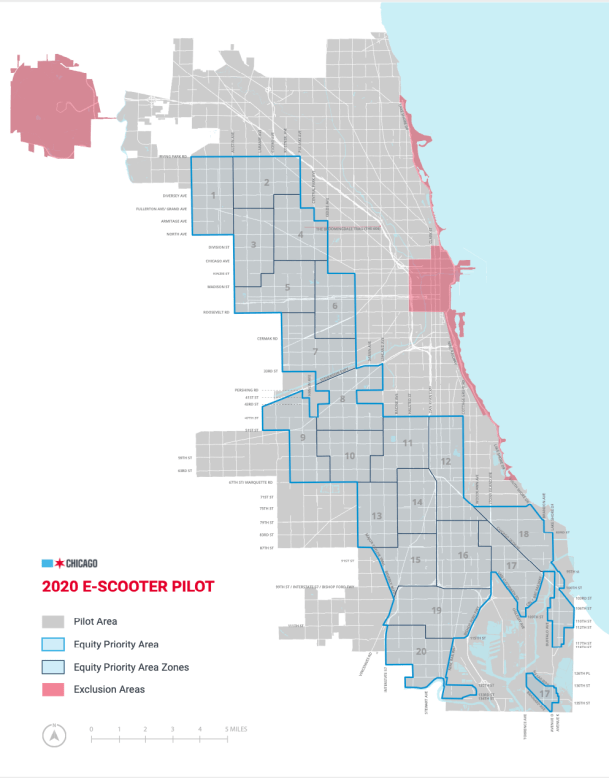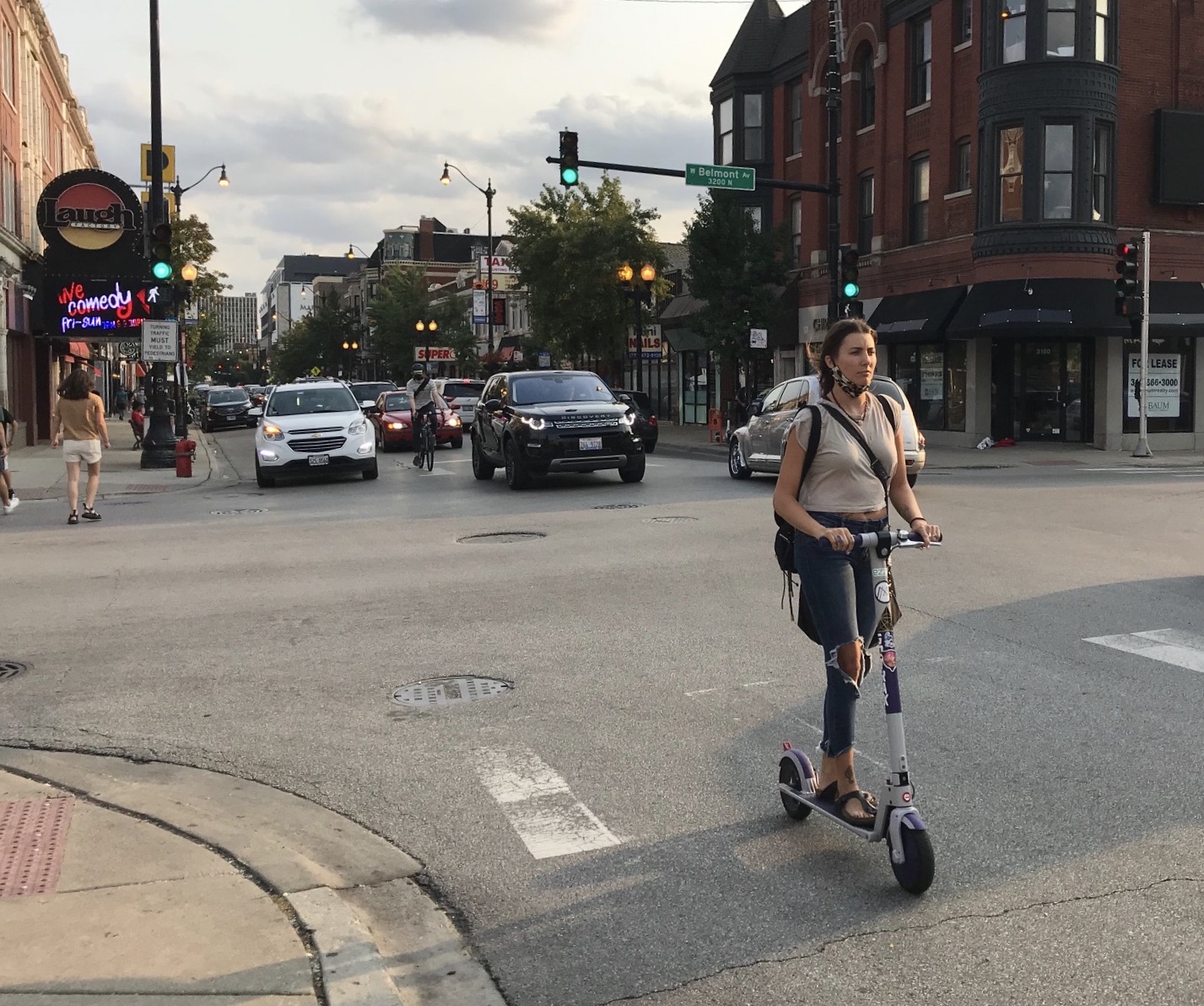Chicago's second dockless electric scooter pilot is wrapping up tomorrow, and numbers released by the city show that ridership fell considerably compared to last year's e-scooter test, according to data released today by the Chicago Department of Transportation and the Chicago Department of Consumer Affairs and Business Protection, which have overseen the program. During the four-month 2019 pilot, riders logged a total of 821,000 trips. But only 640,000 trips have been taken this year since the pilot launched four months ago on August 12.
That's in spite of the fact that the total scooter fleet ballooned from 2,500 total vehicles from ten vendors in 2019, to 10,000 total devices from three vendors -- Bird, Lime, and Spin -- in 2020. In addition, while the first pilot only included parts of the West and Northwest sides, the second test basically covered the entire city, minus downtown and the Lakefront Trail, an area about four times as large.
On the other hand, preliminary data show the average trip length in 2020 was 1.71 miles, 14 percent longer than the average trip in the 2019 pilot. That may indicate that more people were using the gadgets for actual commuting, rather than just taking short joy rides out of curiosity.
Weather probably played a role in this year's lower trip numbers. While the 2019 pilot ran from June 15 to October 15, prime scooting weather, this year's test took place from from mid-August to mid-December, including plenty of cold days when standing on a platform with the wind whipping past you can be a chilly way to travel.
The COVID-19 pandemic, when many fewer residents have been commuting to work, and there are far fewer open entertainment destinations to ride to, probably hasn't helped either.
On the other hand, Divvy bike-share ridership has stayed relatively strong during the crisis, according to a spokesperson for the bike-share system. Divvy had 1,625,598 rides from August 12 to December 10 of this year, during which time the system started with 6,000 blue non-electric bikes and 750 black electric bikes, and ended with 6,000 "acoustic" cycles and 3,500 e-bikes. By comparison Divvy had 1,458,855 rides during the same period in 2019.
One possible explanation is that while last year e-scooters were the only game in town in terms of public electric micromobility devices, this year the new e-bikes, which debuted on July 29, siphoned off some of the business from scooters.
On the bright side, from the scooter perspective, this year's "lock-to" requirement, mandating that the scooters include built-in cable locks for securing them to bike racks or poles, appears to have reduced complaints about sidewalk clutter and vandalism eyesores. Initial 311 service request data show a 79 percent drop in complaints-per-day-per-device compared to 2019, a number that is backed up by feedback collected from residents and community leaders.
And equitable distribution requirements seem to have improved scooter access on the South and West sides. One purpose of the test this year was to see if scooters could help improve transportation options in underserved communities, an issue that became even more important when the coronavirus disproportionately impacted Black and Latino neighborhoods, where more residents work essential jobs than in relatively privileged parts of town.
The 2020 equity priority area included large portions of the South and West sides. Each e-scooter vendor was required to deploy 50 percent of their devices every day in the priority area. Preliminary data show that, on average, 52 percent of all the devices were deployed to the equity priority area, and each vendor’s average daily deployment exceeded the 50 percent mandate. This was a significant improvement from 2019, when vendors deployed only 36 percent of e-scooters in previously designated priority zones. In 2020, nearly 160,000 rides, roughly a quarter of the trips, took place in the equity priority area.

The city is now asking the public to take part in a survey through January 7 as part of an evaluation to determine whether e-scooter companies should be allowed to operate in Chicago on a permanent basis. CDOT and BACP are planning an evaluation of the program that will take into account the survey results, plus trip data and stakeholder feedback. The city is also partnering with researchers at the UIC to better understand rider demographics, trip purpose, mode replacement and ideas for improving any future shared e-scooter service.
The report, including final data, is slated to be completed in early 2021. Raw trip data from the 2020 pilot will also be published on the city’s Open Data Portal at that time.
After completing this year’s evaluation, CDOT and BACP say they will work with residents and aldermen to decide if scooters should be be permanently approved. That's good, because having a third annual scooter pilot would be absolutely ridiculous.
For what it's worth, Spin says it did post-ride surveys with more than 1500 Chicago riders and found that 40 percent used Spin scooter to access transit and 32 percent stated they would have driven alone if no scooter was available.




